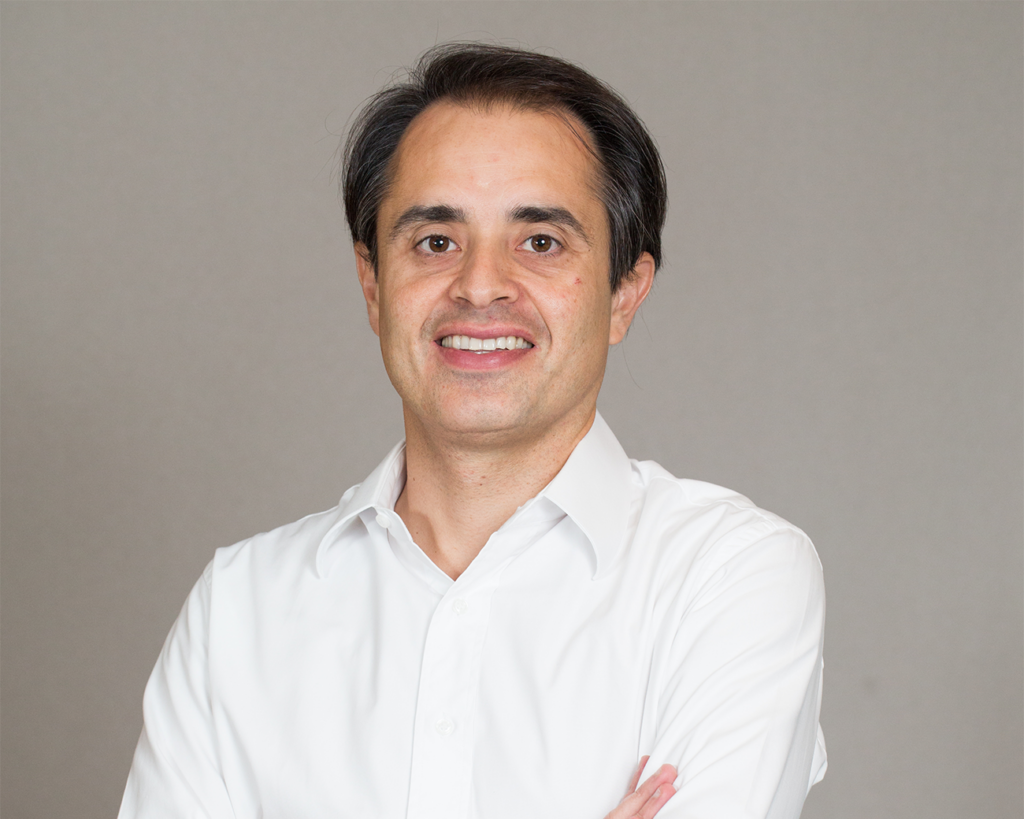Member Profiles
Alvaro Rodriguez Arregui, Co-Founder & Managing Partner, IGNIA
7 February 2017

LAVCA spoke with Alvaro Rodriguez Arregui, Co-Founder & Managing Partner of IGNIA Partners about opportunities for targeting the emerging middle class in Mexico and how their LPs and strategy have evolved from Fund I to Fund II, including an unexpected deal source: international companies that have identified Mexico as a target market and want to partner with a local investor. Two of IGNIA’s recent investments (Pangea and Abra) are US based companies looking to expand in Mexico.
LAVCA: Please provide some background on IGNIA Partners.
Rodriguez Arregui: IGNIA was created in 2007 on the back of our (myself and co-founder Michael Chu’s) success with microfinance and specifically from having been part of Mexico’s Banco Compartamos leadership team that produced 250x investor returns. This experience opened our eyes to the tremendous investment opportunities that existed by serving the emerging middle class of Mexico. We knew that there were great entrepreneurs that needed capital along with strategic, administrative, managerial, and operational support.
IGNIA’s offices are in Mexico City and Monterrey and between our two funds we have US$200 million AUM.
LAVCA: What’s your background? What led to the creation of IGNIA Partners to specifically target the emerging middle class?
Rodriguez Arregui: The emerging middle class represents 70% of the population that we target in our investments. We see a huge opportunity to improve the lives of the emerging middle class by bringing them innovative products and services. The purchasing power of this segment of the population has been growing at 7% per annum for the past 15 years (it now represents a US$426 billion market) and not only is it under-served, but many large incumbents want to penetrate this market and have yet to develop the capabilities to do so.
As to our background, Michael has a deep experience growing businesses, having worked in Private Equity at KKR and later, as CEO of ACCION International, he led transformative initiatives in microfinance. He then co-founded Pegasus Capital, a fund focused in Argentina.
I have a 10-year career in the C-suit of large publicly traded companies, including my roles as CFO of Grupo Vitro and Grupo Elektra and as CEO of Mexican pharmacy chain Farmacia Benavides, and in parallel, I served as Chairman of the Board of ACCION International and Compartamos, which gave me exposure to the opportunities that exist in serving the emerging middle class.
LAVCA: IGNIA Partners has been active in Mexico since 2007. What types of deals were you doing when you started and how does that differ from the types of deals you are doing today?
Rodriguez Arregui: The main difference is the use of technology by the businesses. In Fund I, few of the entrepreneurs that we invested in were very technologically focused. In Fund II, all of our investments to date are companies that have placed technology as a core component of their operations. Furthermore, when we invested Fund I there were very few fintech opportunities. Today we have a strong focus in fintech – mainly in payment systems, P2P lending, and marketplaces.
In Fund I, few of the entrepreneurs that we invested in were very technologically focused. In Fund II, all of our investments to date are companies that have placed technology as a core component of their operations
We are also applying many of the lessons learned from Fund I, such as: we no longer invest in businesses that require a major behavioral change by the customer for the business to be successful. In addition, we are no longer investing in projects that are agribusiness or that are heavily dependent on government funding or contracts. Also, today we mainly focus on projects that are B2C versus Fund I, which had a few investments with a strong B2B dependency.
LAVCA: Who were the LPs backing your first fund? Who are your LPs now? And how has your LP base changed over time?
Rodriguez Arregui: As a first-time fund and with a focus on the emerging middle class, our first fund had strong backing from development finance institutions and institutions such as Omidyar Network and JP Morgan. We also had funding from local and international family offices.
For Fund II, in addition to having local family offices as investors (the development financial institutions had already played their role to help us get off the ground), we were able to tap into the resources of Afores (Mexican pension funds) and were fortunate to gain their support and become the first VC fund in Mexico with Afores as investors.
LAVCA: What insights can you share on the investment opportunity and challenges in Mexico today in light of the new administration in the US?
Rodriguez Arregui: Mexico has a very large and strong local market that has been growing at a rapid pace. Our investment thesis is 100% focused on the local market. We believe the new circumstances and uncertainty surrounding the new US administration will force us to focus more on the local market (taking a more Brazilian approach in regards to building the local market), which we see benefiting our portfolio companies.
LAVCA: We have seen opportunities in the technology sector take off in Mexico, notably in fintech. Including recent investments in companies like Sr.Pago and Pangea, both fintech companies, how much of your portfolio is in tech and where do you see the opportunity for Mexico in developing successful technology companies?
Rodriguez Arregui: We see technology as a tool to achieve lower costs and larger scale. This combination is exactly what is needed to serve the large emerging middle class market. Fortunately, in Mexico we are seeing a new breed of technologically savvy entrepreneurs, bringing together the perfect match to fulfil our investment thesis of finding businesses that successfully serve the emerging middle class.
Fintech is a perfect example of these elements coming together. Traditional businesses that provide financial services to the emerging middle class need to use technology to improve their products and make them more affordable, faster and more convenient. We believe that most of the innovations to improve financial services through technology will come from outside the walls of traditional financial institutions, making the combination of innovative fintech entrepreneurs and large financial institutions a winning formula.
LAVCA: Please describe one of your recent investments. What unique actions are you taking to add value to the company from an operational standpoint?
Rodriguez Arregui: IGNIA recently invested in two US based companies looking to expand in Mexico. One is Pangea, a Chicago-based international remittances platform. The company is a mobile-first remittance platform that allows users to send money internationally in 30 seconds. IGNIA invested in its Series B, and as its first Mexican investor the strategic partnership with IGNIA will help the company fulfill its rapid expansion plan in Mexico.
The other company is Abra, a bitcoin-blockchain-enabled mobile wallet and payments company based in California that aims to make sending and receiving payments as easy as sending a text message. Mexico is a key market for their expansion efforts. The company plans to grow rapidly in the country in partnership with IGNIA.
Further to adding value through strategic and operational support, IGNIA is uniquely positioned to promote relationships between both these companies and potential partners in Mexico, such as banks and cash-out partners. These partnerships are essential to Abra and Pangea’s growth and with only a few months from having invested, they have already begun to produce results.
LAVCA: How has the environment for co-investing in Mexico changed over the last couple of years? Can you share any insights/experiences you’ve had co-investing with local investors, international investors, and corporates?
Rodriguez Arregui: The co-investing landscape in Mexico is night and day from just a few years ago. Not long ago you could rarely co-invest. Today, every single investment we have made in Fund II is a co-investment.
The co-investing landscape in Mexico is night and day from just a few years ago. Not long ago you could rarely co-invest. Today, every single investment we have made in Fund II is a co-investment.
This change is very important because it secures more funding for entrepreneurs which is necessary for them to scale their companies. However, co-investment deals are still only available for relatively small amounts. Co-investments of more than US$2 million are rare and larger funds need to be created for that to happen.
We have unexpectedly found an important deal source: international companies that have identified Mexico as a target market, and want to partner with a local investor. For example, as mentioned previously, we recently made two investments in US based companies, Abra and Pangea, that despite already having strong US investors, have looked to IGNIA to co-invest in order to add the necessary local expertise.
LAVCA: How do you view the exit environment in Mexico? What has IGNIA’s experience been with the exit market?
The exit environment is evolving very quickly in Mexico. We are seeing family offices and corporates making acquisitions.
Rodriguez Arregui: The exit environment is evolving very quickly in Mexico. We are seeing family offices and corporates making acquisitions. For example, BBVA Bancomer’s recent acquisition of Openpay is a perfect example of large Mexican corporates looking for the innovation they need through acquisitions. At IGNIA we are already seeing large corporates approaching us expressing strong interest in our portfolio companies. We also expect private equity funds will soon start acquiring companies funded by VCs.
LAVCA: Why did you join LAVCA?
Rodriguez Arregui: We joined LAVCA because we want to help develop a healthier co-investment ecosystem in Mexico. We believe that if we are going to have successful investments that reach the necessary scale to achieve exits with high valuations, they will need to receive ample funding along the way. This can only be achieved with multiple investors backing the company, for which a healthy co-investment ecosystem is important. For this to happen we need to attract foreign funds to Mexico, and we would like to position IGNIA as the co-investor of choice when international funds are making investments in the country.
You may be interested in...
-

Luciana Antonini Ribeiro, eB Capital
Executive: Luciana Antonini Ribeiro, Co-Founder and CIO Member Name: eB Capital Year...
-

Cristiano Gioia Lauretti, Kinea Private Equity
Member: Kinea Executive: Cristiano Gioia Lauretti, Head of Private Equity HQ: São...
-

Maria Pia Iannariello, MGM Innova Capital
LAVCA recently spoke with Maria Pia Iannariello, Co-Founder & COO of MGM Innova Capital,...
-

Rafael Ramirez, Portfolio Manager, Alaska Permanent Fund Corporation
LAVCA recently spoke with Rafael Ramirez, Portfolio Manager– Private Equity &...